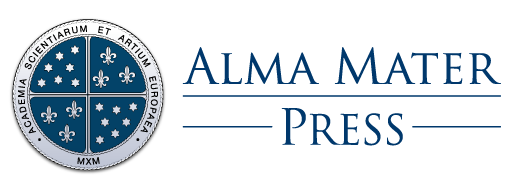ACCESS TO ARCHIVES, ACCESS TO KNOWLEDGE
Keywords:
Archives, accessibility, professionalism, archival research methods, cooperationAbstract
Viewed upon as repositories of “original” materials, the concept of authenticity permeates the very meaning of archives. The aim of the following report is to present a set of research methods and techniques that historians use when embarking on a quest for original archival documents and, inevitably, a number of dilemmas connected with the (in)accessibility of sources. How important (and informing) is the archive’s role in the historians’ production of knowledge? Does professionalism of archivists influence profoundly the outcome of the researcher’s agenda and, at the same time, help mould further awareness of relevant archival material dispersed across collections and beyond national borders? Archivists play a significant part not only in creating information to produce social and historical knowledge but also in reconstituting social memories that never should never fade.
Downloads
References
Blouin, F. X. and Rosenberg, W. G., eds. (2010). Archives, Documentation and Institutions of Social Memory: Essays from the Sawyer Seminar. Ann Arbor: The University of Michigan Press.
Bobič, P. (2012). War and Faith: The Catholic Church in Slovenia, 1914-1918. Leiden: Brill.
Cohen, D., and O’Connor M., eds. (2004). ‘Comparative History, Cross-National History, Transnational History. Definitions’. In: Comparison and History. Europe in Cross-National Perspective. Abingdon: Routledge, pp. ix-xxiv.
Cook, T. (2002). ‘“A Monumental Blunder”: The Destruction of Records on Nazi War Criminals in Canada’. In: Archives and the Public Good, ed. by R. J. Cox and D. A. Wallace. Westport, Conn.: Quorum Books.
Cunningham, S. (2012). Archive skills and tools for historians. Making History. <https:// archives.history.ac.uk/makinghistory/resources/articles/archive_skills_and_ tools_for_historians.html>
Eisenberg, C. (2003). ‘Kulturtransfer als historischer Prozess. Ein Beitrag zur Komparatistik‘. In: Vergleich und Transfer. Komparatistik in den Sozial-, Geschichtsund Kulturwissenschaften, edited by Jürgen Schriewer. Frankfurt/Main: Campus, pp. 399-417.
Garbara, F. (2018). ‘Private Archives in South Africa: Their Protection and Access with Particular Reference to the now Defunct Lutheran Theological Institute Library and Archives’. Atlanti 28 (2018), n.1, pp 59-65.
Gilliland, A. J., and McKemmish, S., Lau, A. J. (2006). Research in the Archival Multiverse. Clayton: Monash University Press.
Glažar et al., (2001). Predpisi s področja arhivske dejavnosti v Sloveniji. Ljubljana: Arhiv Republike Slovenije.
Krampač, T. (2003). Vodnik po matičnih knjigah Nadškofijskega arhiva v Ljubljani. Ljubljana: Nadškofijski arhiv.
Križaj, M. (2007). ‘Dostop do javnega arhivskega gradiva v nekaterih državah Evropske unije’. In: Arhivi 30 (2007), st. 1, pp. 71-82.
Ruthner, J. and Schonfeld R., C. (2012). Supporting the Changing Research Practices of Historians < http://www.sr.ithaka.org/research-publications/supportingchanging- research-practices-historians >
SŠK (2017). Pravilnik o uporabi gradiva škofijskih arhivov. Ljubljana: Slovenska škofovska konferenca.
Ther, P. (2003). ‘Beyond Nation. The Relational Basis of a Comparative History of Gemany and Europe’. In: Central European History, 36 (2003), n.1, pp. 45-73.
Vodnik po fondih in zbirkah Nadškofijskega arhiva v Ljubljani, Ljubljana, 1999;
Winn, S. R. (2015). ‘Ethics of Access in Displaced Archives’. In: Provenance, Journal of the Society of Georgia Archivists, 33 (2015), n. 1, pp. 6-13.
ZAGOOP, UL RS 85/2016

